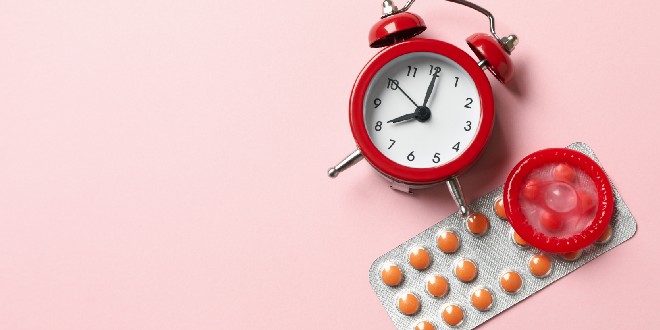Safe sex is any sexual activity that does not allow semen, vaginal fluid or blood to pass from one person into the bloodstream of another person.
Quite often when we talk about safe sex, we talk about the risk of HIV. Although some sexual activity may be safe from HIV, it’s still possible that you could get other sexually transmissible infections (STI’s).
The important thing to remember is to get checked at a sexual health clinic regularly.
There are some sexual activities that are safe and don’t present a risk for HIV transmission:
- Kissing is safe because it does not involve semen, vaginal fluid or blood. Saliva does not transmit HIV
- Massage. All forms of sexual enjoyment with only skin contact, such as massage or body stroking, have no risk of HIV transmission
- Receiving (getting) oral sex. The chance of contracting HIV from someone else’s mouth is remote, although you may be at risk of other STI’s like Chlamydia or Syphilis
- Rimming (licking someone’s bum) is safe for HIV, but there are a few other infections such as Hepatitis A and B as well as gut bugs that are easily passed on this way. You should get vaccinated against Hepatitis A and B
- Mutual Masturbation (hand jobs) involving touching and rubbing each other’s penis or vagina is safe – provided you have no cuts or sores on your hands and you’re not using bodily fluids as lubricant
What is unsafe sex?
Unsafe sex is any sexual activity that allows semen, vaginal fluid or blood to pass from one person into the bloodstream of another person.
Unsafe sexual practices include:
- Having sex without a condom – Anal or vaginal intercourse without a condom presents a real risk of HIV transmission. Whether you are the insertive (top) or receptive (bottom) partner, male or female, having unsafe sex is the major way HIV is passed on
- Practices that may include bodily fluids such as blood, semen or pre-cum come with a slight risk. It’s important to make sure you have no cuts or sores. If in doubt cover up!
Safe sex equipment
Condoms and water-based lubricant
If used properly, using condoms and water-based lubricant will eliminate the risk of HIV and also the risk of most STI’s. Some things you need to think about:
Choose the right size. There are different sizes out there. Check out the different ones and use the ones that are right for you.
- Check the use-by date and Australian Standard mark
- Be careful when opening the condom packet. You don’t want to rip the condom inside. It’s not a good idea to open the condom packet with your mouth
- It’s important to put the condom on while you are hard. Do this by holding the condom by the teat (there is a little top) and roll the condom all the way to the base of the penis
- Always use a water-based lubricant. Do not use oil based lubricants, items like hand cream, moisturizers etc destroy condoms and could cause the condom to tear
- Hold the condom at the base when withdrawing. That way you ensure that the condom comes out completely
Some things to remember:
- You should only use condoms once
- Take breaks and change condoms regularly
- Change condoms when changing partners
- Water-based lubricant is your friend. Use plenty of it
Dams
Dams are thin square pieces of latex which, if used properly, can prevent the transmission of STI’s through oral sex. Use the dam by completely covering the vagina or anus – adding water-based lubricant on the body side of the dam to increase sensitivity.
Some things to remember:
- Make sure you take care with sharp fingernails
- Only use one side of the dam – make sure you remember which side. If in doubt, get a new one
- Remember to use a new dam for each person and also use a new dam if changing between bum and vagina
Gloves
A latex glove helps prevent HIV and other STI’s entering cuts or sores in the hand when fingering and fisting. Although it is highly unlikely that STI’s will enter through cuts or sores in your hands, it is possible that you will put your hands in other places where they can pass on an STI. Don’t forget to change gloves when changing partners and use plenty of water-based lubricant on the outside of the glove.
Sex toys? Use condoms
If toys, such as vibrators, dildos or buttplugs are shared during sex, it’s important to make sure you’re using condoms. By sharing sex toys you could still pass semen, vaginal fluid or blood to another person.
Some things to remember:
- You should keep your own toys
- Always use condoms especially when sharing or during sex. Don’t forget to change the condom when switching between people
- Remember to wash them carefully in hot soapy water after each person uses them
Sexually transmitted infections (STIs)
If you have had sex with another person, or are having sex with other people it’s important you know about Safe Sex (e.g. using condoms and water-based lubricant).
By having Safe Sex you are helping to protect yourself against STI’s.
How are STIs transmitted?
STIs are infections that are transmitted through close body contact (e.g. having sex, or being sexual). Sexual contact includes vaginal/anal sex, oral sex, touching, fingering or kissing/licking a penis or rectum.
How would I know if I have an STI?
Many people who have an STI wouldn’t even know it. This is because often they have no symptoms!
Although common symptoms include:
- Smelly, cloudy or yellowish discharge or pus coming from your dick or vagina
- Blisters, sores, warts or lumps on your genitals, bum or any of the surrounding skin
- Itchiness in the genital area
- It hurts when you pee
- It hurts when you have sex
It’s important that you get tested regularly for HIV and STI’s (even if you don’t have any symptoms). You can get tested by any GP, (i.e. your family doctor) but i suggest that you go to your closest Sexual Health Clinic.
It’s recommended that you get checked every 3-6 months, just to be on the safe side.
What does a good sexual health check include?
Testing and treating for STI’s is quick and easy! It’s often even free if you go to places like sexual health centres or youth health centres. You don’t even need a Medicare Card.
What will they do?
They will ask you about your sexual history. It’s best to tell them everything. Don’t be ashamed or worried. They’re not there to judge you and everything you tell them is confidential.
- They will take a little bit of blood from you. It’s just a small prick. If you don’t like needles, look the other way and focus on wriggling your toes (it really does help)
- You’ll also have to give them a urine (pee) sample. Nothing major, sometimes it’s just hard to get it in the little jar
- A few swabs (a swab is like a cotton bud you would use to clean inside your ears), depending if you’re male or female – swab of your cervix, vagina or rectum and tip of the penis. Also they may want to swab the back of your throat
- They’ll also do a quick physical examination to check for crabs, scabies, warts and herpes.
- They will also ask you to come back in a couple of days, to get your results. They won’t be able to give them to you over the phone so you’ll have to go back
- If they have found something then they will talk you through it. Most of the time it’s a few tablets, or some cream. It depends on which STI you are being treated for
See it’s easy – there is nothing to it. Often the hardest thing is remembering to do it. But set a reminder in your phone, or put a spot in your diary. It’s the easiest way to make sure.
Ignoring STI’s is no treatment!
 Lesbian, Gay, Bisexual, Transgender & Intersex News Lesbian News, Gay News, Bisexual News, Transgender News, Intersex News, LGBTI News
Lesbian, Gay, Bisexual, Transgender & Intersex News Lesbian News, Gay News, Bisexual News, Transgender News, Intersex News, LGBTI News




